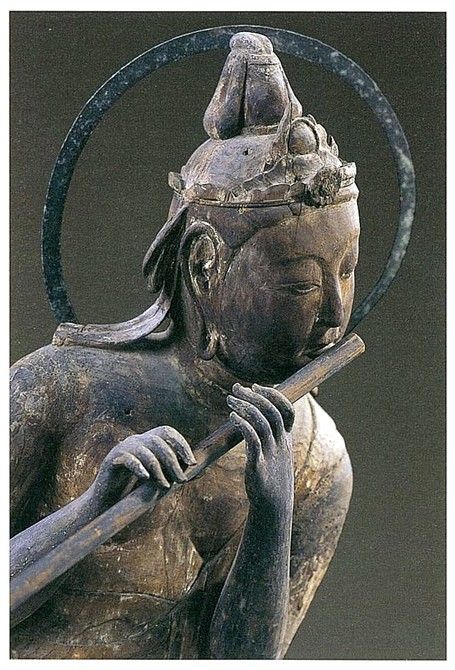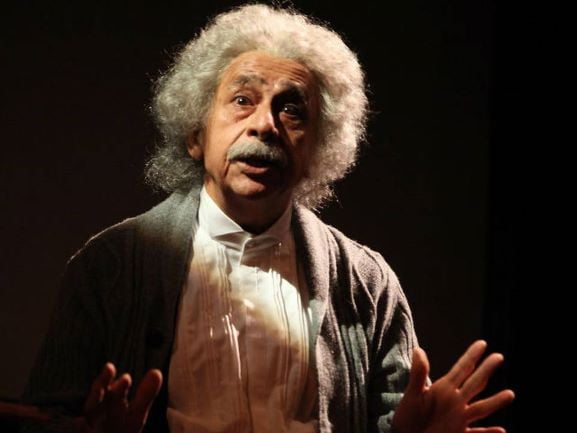There was a folk play being performed by local artists in the village. The drama was a story of Raja Bharthari, also known as “Sant” Bharthari, in many parts of India. He was the ruler of Ujjain, before renouncing the world and abdicating in the favor of his younger brother Vikramaditya. A king who had renounced all his wealth, his very big and prosperous kingdom of Ujjain to become a ‘sadhu’ (sage). The actor who was performing the role of Bharthari was in his real life a very poor man who was struggling to make ends meet to feed his family.
That evening the Zameendar (wealthy landlord) of the village came to see the play with his family. It was his birthday. He was really moved by the story and the performance of the lead actor. At the crescendo of the performance, the Zameendar was so overwhelmed that he removed his pearl and diamond-studded necklace worth a fortune and threw it at the actor as his appreciation and reward.
The actor who was in the get-up of the Sadhu was so into his character that he picked up the necklace and threw it back to Zameendar and roared, “I have renounced my entire kingdom to become a sadhu and you have the audacity to offer me this worthless necklace???”
Zameendar was shocked and embarrassed.
— — — — — — — — — — — –
At Patkar Hall, Mumbai, SNDT University had hosted an English play — Einstein, featuring Naseeruddin Shah. What Gabriel Emanuel, the Canadian playwright & author, has achieved in his entertaining and thought-provoking play, is to make a line drawing of Einstein that, with great economy of means, suggests the spirit of the man. This was a very great man, an inquiring and lovable figure, plagued nonetheless with doubt, disappointment and failure, in common with the rest of mankind.
The play was intense and Naseeruddin Shah was at his best. When the play was over and Naseeruddin Shah went back to the green room, the Vice Chancellor Dr. (Mrs) Vasudha Kamat, the Chief Guest Mr. S. Ramadorai & Mrs. Mala Ramadorai came on to the stage to felicitate the actor. Naseeruddin Shah was uncomfortable to come back on stage in the same getup of Einstein and it literally took him 15 minutes to unwind himself of the character to accept the actor’s honour.
— — — — — — — — — — — — –
OSHO, Who are you and what are you doing? asked his sanyasi Krishna Prem.
OSHO: “I am not, and I am not doing anything at all. But something is happening, something tremendous is happening — that is another matter, it has nothing to do with my doing it.
“I am not.” When I say this, I mean that there is no personality, no person, but just a presence. And the presence without the person looks almost like an absence. It is. The person is absent.

I am only a hollow bamboo, and if you hear some music then it must be from God, it is not from me; it has nothing to do with me. I am not there, I have utterly disappeared. That’s what enlightenment is all about. That’s what Atisha calls bodhichitta.
But things are happening, they always happen. Whenever a person disappears and becomes a presence, immensely valuable things happen around him. A great synchronicity starts functioning. Those who are courageous enough to come close to such a presence start changing, with no effort, just sheer grace, start becoming totally different beings by just being in the buddhafield, in the energy field of a master.
I am not doing anything, Krishna Prem, and I am not. But still you see me coming, going, talking to you, doing this and that. For that, I will tell you a story.
A Hollywood director once sent out word that he was looking for an actor to play the role of Shakespeare’s Hamlet. The actor was to be over six feet tall, young and vigorous and have an excellent command of the language.
On the day of the casting call, many fine tall young men showed up, but among them was a little old Jewish man with a heavy Yiddish accent. The director picked him out immediately and asked: “What do you want?”
The man answered “I vant to be an hector. I vant to play Hemlet!”
“Are you kidding or just crazy?” the director asked. “You are only five feet tall and you have an accent so thick I could cut it with a knife. What can you possibly do?”
The little man said: “I vant to hect. Giff me a chance.”
Finally the director gave in. “Get up on stage and try it.”
The little man stepped out onto the stage. Somehow he looked much taller and full of energy. He began to speak with a booming voice and the perfect King’s English: “To be or not to be….”
When he was finished, there was a hush. Everyone was amazed. The director said: “That’s unbelievable.”
The other actors said: “That’s wonderful.”
The little Jew just shrugged his shoulders and said: “Dat’s hecting!”“
OSHO : The Book of Wisdom, Chapter 28
— — — — — — — — — — — — — — –
શ્યામ તારી બંસી થઈ બજાવું છે જગ મારે,
સુર છેડવા કેવા ક્યારે એ જોવાનું તારે.
श्याम तेरी बंसी बनकर बजाना है जग मोहे,
सुर लगाना कब और कैसे ये देखना तोहे।
Shyam teri bansi bankar bajana hai Jag mohe,
sur lagana kab aur kaise yeh dekhna tohe,
Hey Krishna, I surrender to become your flute
You have to decide how you wish to play me.

